Phonics Skills Letter Recognition Worksheets for Ages 5-9
8 filtered results
-
From - To
Our Phonics Skills Letter Recognition Worksheets for ages 5-9 provide an engaging and effective way for young learners to master the alphabet. These expertly-designed, printable activities focus on letter identification and phonemic awareness, laying a strong foundation for reading success. Each worksheet combines fun visuals and interactive exercises to keep kids motivated as they practice recognizing letters and their corresponding sounds. Perfect for reinforcing classroom learning or providing extra practice at home, our resources support and accelerate the literacy journey. Discover a world of phonics fun today on KidsAcademy.mobi and help your child develop essential reading skills.
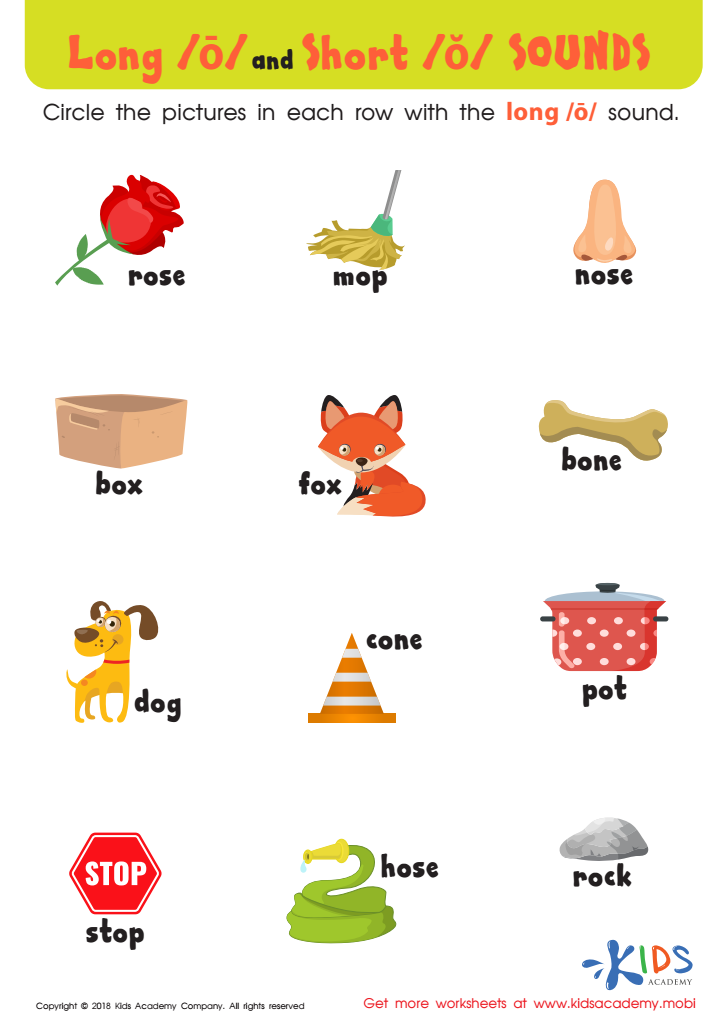

Reading: Long O and Short O Sounds Worksheet


Short Vowels /e/, /i/, and /u/ Worksheet
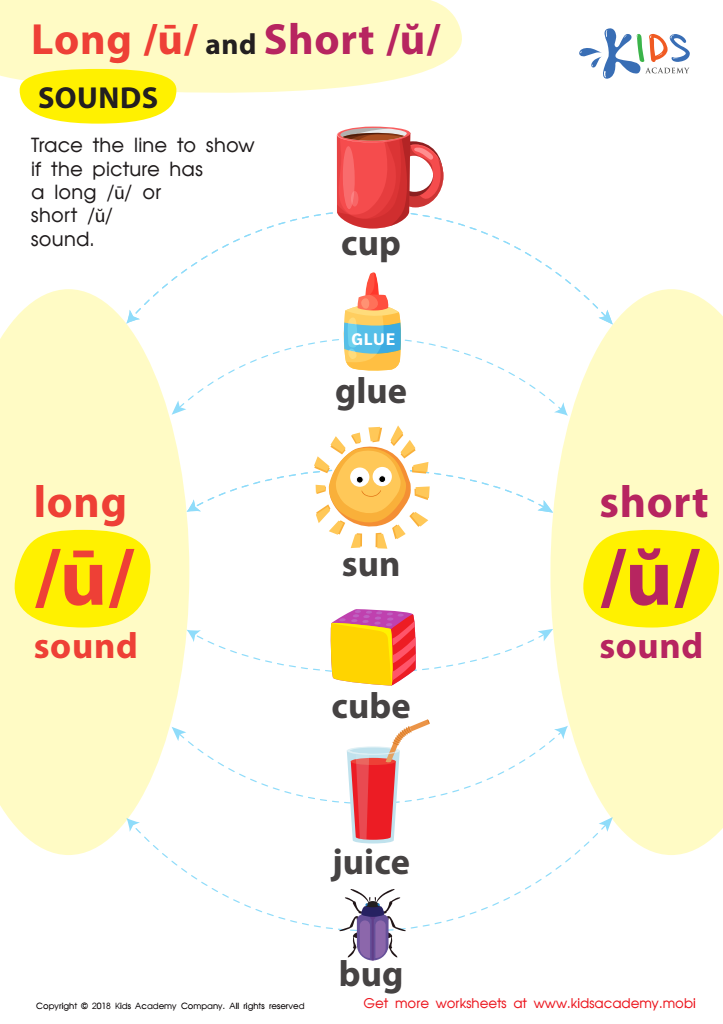

Reading: Long U and Short U Sounds Worksheet


Long Vowel Maze /o/ and /i/ Worksheet
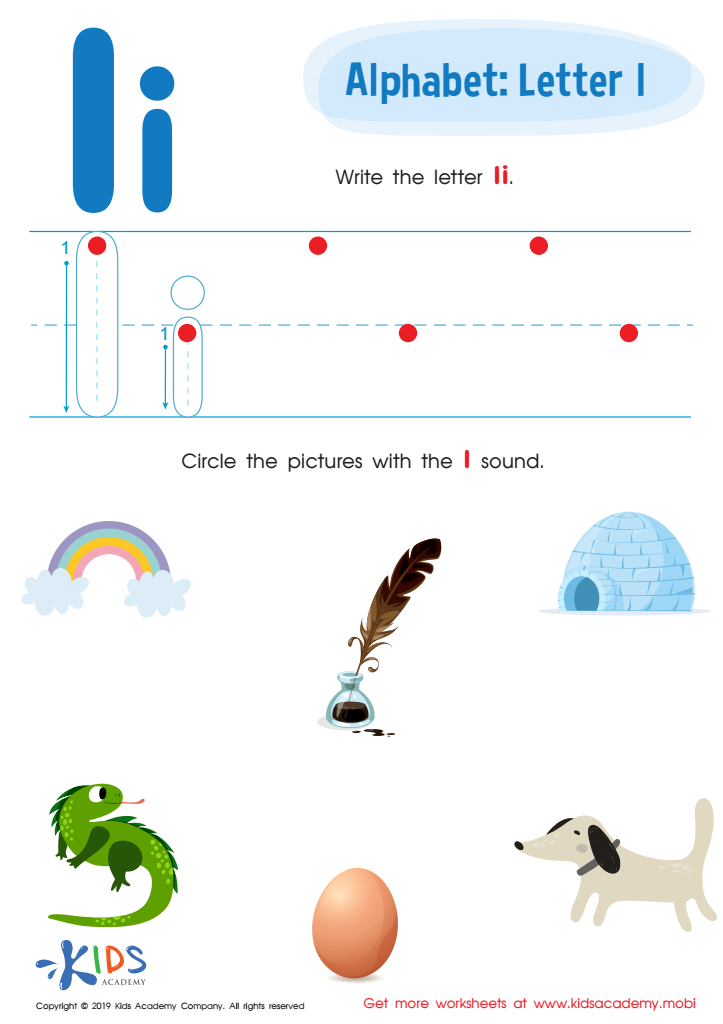

Letter I Tracing Worksheet
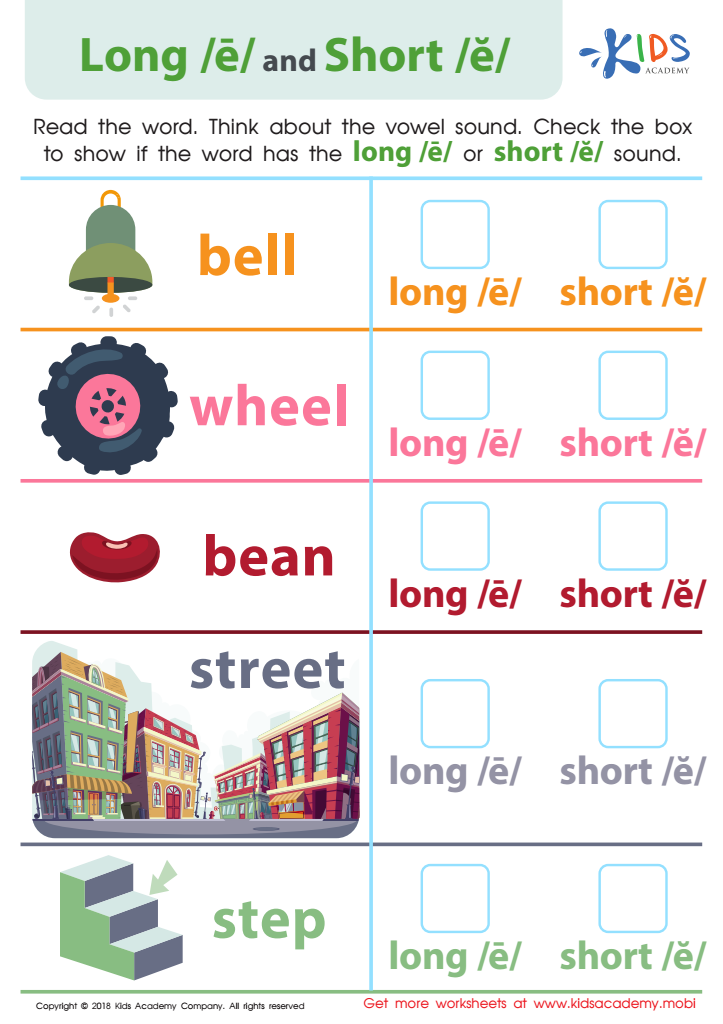

Reading: Long E and Short E Worksheet
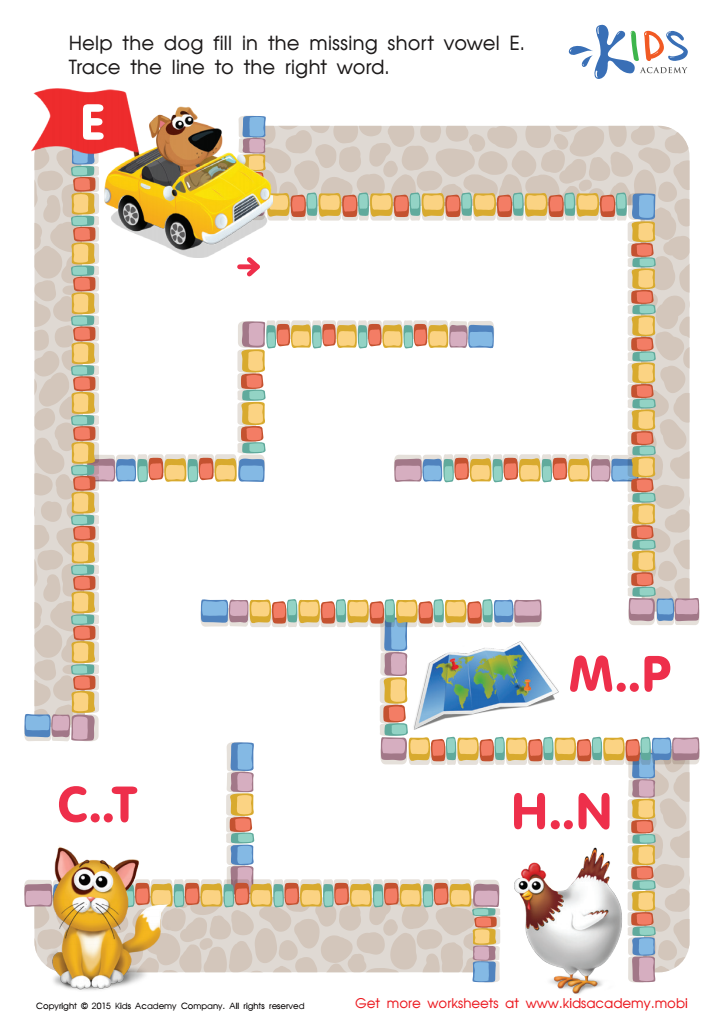

Short Vowel Sound E Worksheet
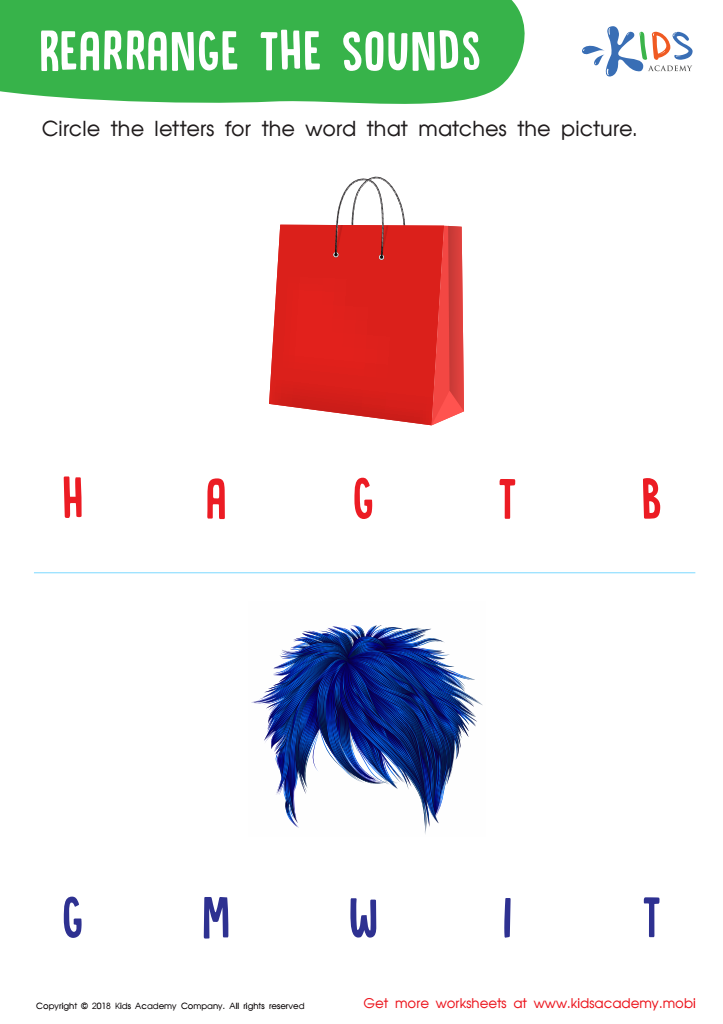

Rearrange the Sounds Worksheet
Phonics skills and letter recognition are fundamental aspects of early literacy that can profoundly impact a child’s academic success and self-confidence. For children ages 5-9, mastering these skills forms the cornerstone of reading and writing, enabling them to decode words and comprehend text. When parents and teachers emphasize phonics and ensure children can recognize letters, they are actively laying the groundwork for these young learners' ability to process written language efficiently.
Phonics instruction helps children understand the relationship between letters and sounds, fostering crucial decoding skills essential for reading fluency. The ability to recognize letters by sight accelerates this process, as children can quickly associate written symbols with their corresponding sounds without hesitation. This efficiency becomes particularly important as students progress to higher-level reading tasks where fluency and comprehension are necessary for success across subjects, including mathematics, sciences, and social studies.
Early investment in phonics and letter recognition also cultivates a love for reading by making the process less daunting and more enjoyable. Children confident in their reading abilities are more likely to engage with different texts, promoting lifelong learning and curiosity. Therefore, by prioritizing these fundamental literacy skills, parents and teachers can set children on a path toward academic achievement and a lifelong love of learning.

 Assign to My Students
Assign to My Students





















